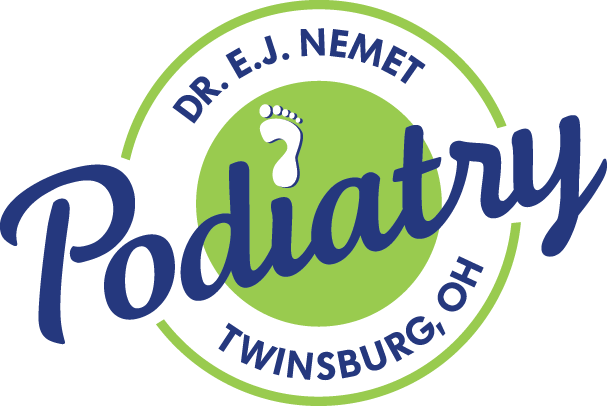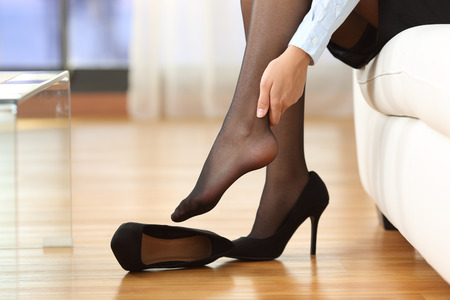How High Heels Hurt Your Feet
High heels often have the cache of making women feel their best, but the consequences of wearing them on a regular basis can range from a relatively minor problem (such as ingrown toenails,corns, and calluses) to more serious conditions including Achilles tendonitis, knee damage, hip displacements, and back complications.
Problems frequently caused by wearing high heels include:
- An increase in foot deformities—It almost goes without saying that having your toes compressed in the small space at the front of high heeled shoes can contribute to and cause hammertoes, bunions, corns and calluses.
- Neuroma—Nerve conditions such as Morton’s neuroma are exacerbated by tightly fitting shoes that can squeeze the metatarsal bones together.
- Achilles tendon injury—Frequently wearing high heels can cause excessive pressure on the large tendon on the back of your heel. This Achilles tendon, as it is called, can become shorter over time which often permanently affects your calf muscles making walking a source of discomfort.
- Abnormal gait mechanics—Your center of gravity is shifted forward if you wear high heeled shoes, causing more of the weight and pressure to be relegated from the heel of the foot to the ball of the foot, which causes you to arch your back to compensate. This overcompensating causes misalignment problems in your spine that can radiate to other parts of your body.
Not wearing high heels at all is the best way to avoid all these complications, but wearing them in moderation will help healing to occur and avoid continuing damage.
Steps you can take to limit the damage include the following:
- Wear lower heels—Choosing styles with two inch or lower heels puts much less strain and pressure on your toes than the higher heeled versions, but even this can be bad for your feet.
- Wear flats for traveling—you can always change into high heels upon arrival.
- Stretching exercises—Daily stretching and flexing exercises can help relax your tendons and ligaments and increase muscle strength.
- Stilettos are more damaging—Choose wider, wedge shaped heels for increased stability and more even weight distribution.
If you are dealing with pain and discomfort from wearing high heels, contact your podiatrist for the proper evaluation and best treatments. At E.J. Nemet Podiatry in Twinsburg, E.J. Nemet, DPM, treats a variety of foot and ankle conditions, including sports injuries, pediatric foot problems,diabetic foot complications,nerve disorders, and toenail and skin conditions. With advanced technologies and a dedicated staff, Dr. Nemet provides expert and compassionate care to patients in the Twinsburg and Beachwood areas. To contact us or to schedule an appointment, please call (234) 212-9940.

